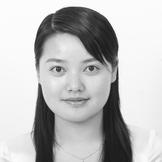Liping Zheng

Freie Universitaet Berlin
PhD Candidate
Global Humanities Junior Fellowship at The Chinese University of Hong Kong
Liping Zheng is a Ph.D. candidate of cultural studies from the John F. Kennedy Institute for North American Studies, Free University of Berlin, where she also received her master’s degree in American literature and culture. She completed her bachelor’s degree of English language and culture at Yangtze University, located in Hubei Province of central China. Her research interests broadly include topics such as soft power, public and cultural diplomacy, nation branding, U.S.-China relations, film studies, American modern literature, women literature and Chinese diaspora literature. She has published three articles: “Feminism and the Film Adaptation of Jane Austen’s Sense and Sensibility” (2018), “Shaping a Paragon of the Puritan Female Image: Mary Rowlandson’s Captivity Narrative” (2018), “Feeling the Decline of American Soft Power and the Growing Influence of China” (2017).
The Battle of Soft Power between the U.S. and China in the Twenty-First Century, 2001-2018
Soft power, which is widely regarded as one of the pillars of America’s world leadership, emerges as an important playing field where the two great powers—China and the U.S. wrestle with each other, as the dramatic rise of China in economic and military strengths continues to increase its international clout in the new century. Liping Zheng’s dissertation deals with a timely case study of soft power rivalry between the two world’s largest economies, which embraces socialism and capitalism respectively. To illuminate China’s grand strategy of soft power in recent 15 years and its looming challenge against the U.S., her study focuses on an in-depth analysis of China’s concept and strategic intent of soft power, the Chinese Dream, the rapid development of Chinese film industry in relation to China’s national image building and culture branding, as well as China’s remarkable project of constructing world-class higher education and think-tanks. These selected aspects parallel with a contrasting discussion of America’s soft power theory and primary sources of soft power such as the American Dream, Hollywood movies, and American universities.
